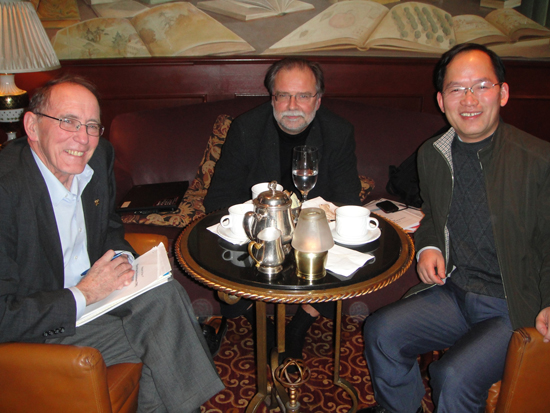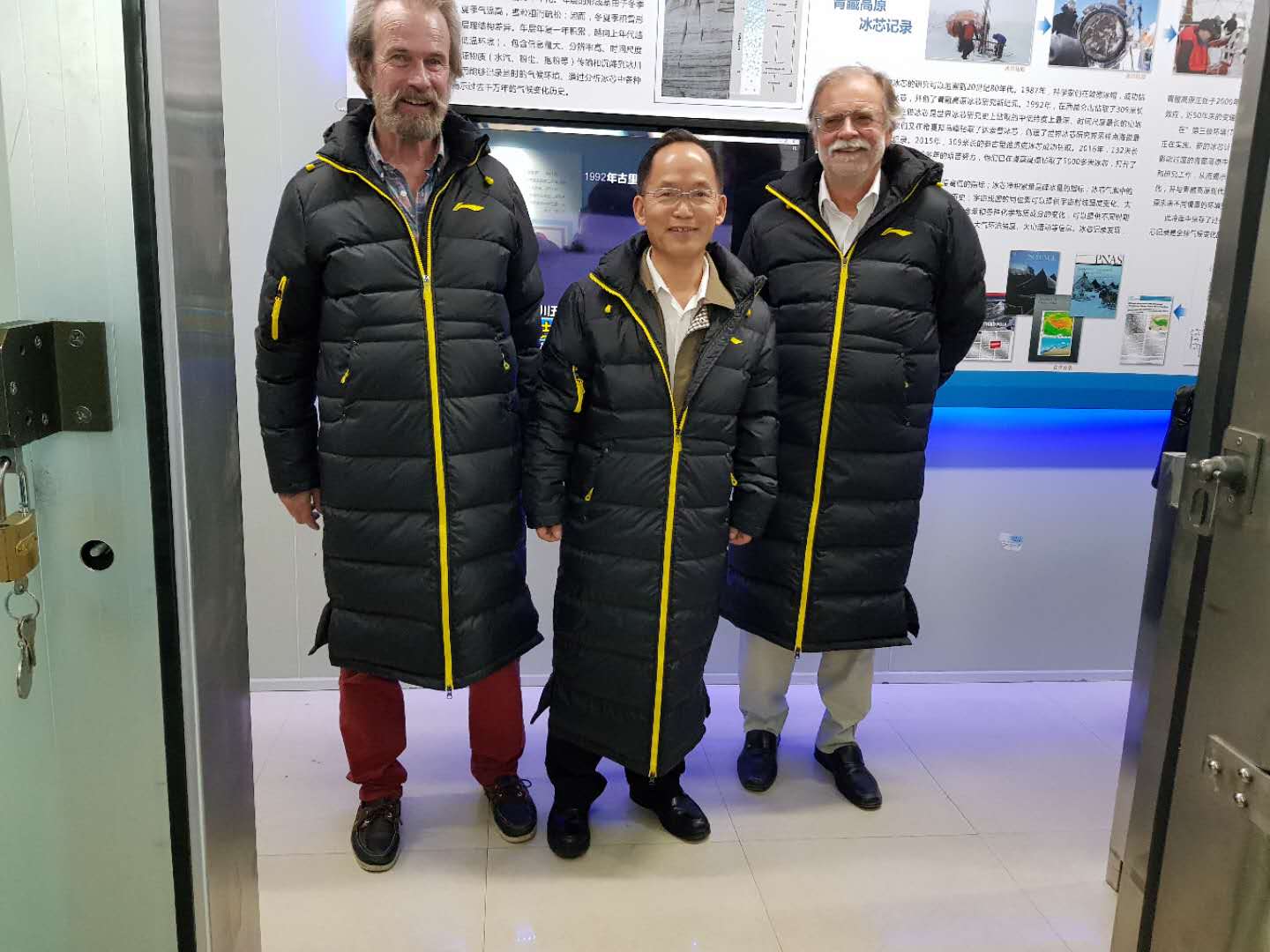Scientists often seem studious, scholarly and, well, rather boring, due to their stereotype as nerdy blokes who grow strange beards and speak gobbledygook. But spending time with Prof. Volker Mosbrugger, TPE co-chair and general director of the Senckenberg Society for Nature Research (SGN), would disabuse anyone of that facile notion. My journey with Prof. Mosbrugger is proof.
I accompanied Prof. Mosbrugger on a half-month field study across Tibet in August, 2018. The goal of the trip was to investigate lichen across the Tibetan Plateau as part of the efforts to understand local ecosystems. The journey ranged from the southeast Tibet to the foot of Mt. Everest and involved sample collection as well as analysis.
In some ways, Prof. Mosbrugger fits the stereotype of a scientist: He wears a beard and works really hard. For example, as our SUV wended across Tibet, he spent nearly every moment on his MacBook, either reading or typing. The spiral uphill drive to Everest base camp – which nearly paralyzed me with fear – didn’t faze him. The only thing that stopped him was when his laptop battery died.

But Prof. Mosbrugger’s hard work is easily matched by his capacity to “play hard,” starting with his lightning-fast table tennis moves. Even the 3,600-plus-meter altitude at the Lhasa campus of the CAS Institute of Tibetan Plateau Research (ITP) was no hindrance to the professor’s aggressive game. I watched him cleanly flatten a series of awestruck opponents.
According to Gabi Mosbrugger, the professor’s athletic wife, Prof. Mosbrugger was trained in table tennis from a young age. Ms. Mosbrugger is no slouch at table tennis either. She played as powerfully and tirelessly as if she were back home in Frankfurt rather than on the Tibetan Plateau.
“This is not as hard as our hike in Norway,” said Gabi, referring to a vacation the couple took before coming to Tibet, celebrating their 38th wedding anniversary.
The Mosbruggers met as university students. Going to Hungary together in 1973 – before the fall of the Iron Curtain – gave their relationship a certain exotic cement. But their union ultimately thrived because of what they have in common, including a love of the mountains, said Ms. Mosbrugger.
Indeed, the fascination with mountains is what brought Prof. Mosbrugger to Tibet in the first place. However, the reason he’s returned so many times – he’s forgotten exactly how many – is because of the productive and satisfying fieldwork with his Chinese colleagues, especially those from ITP.
Prof. Mosbrugger’s long and fruitful relationship with ITP began when he met Prof. YAO Tandong, chair of the Third Pole Environment (TPE) and honorary director of ITP.
“I think Prof. Yao and I liked each other from the very beginning. We think in similar directions and dimensions and we both like nature, Tibet and fieldwork,” said Prof. Mosbrugger, who noted that the TPE program emerged from a meeting he had with Prof. Yao and Prof. Lonnie Thompson at a Chicago hotel bar in January 20,2009.
“All three of us felt that the Tibetan Plateau is such an important key area of planet Earth that it requires an international and interdisciplinary research program of the best experts worldwide, with ITP as the core institution,” said Prof. Mosbrugger.

The TPE program has achieved many outstanding accomplishments over the past decade. Prof. Mosbrugger said he is particularly proud that “TPE provided the first comprehensive information about the future trends linked to global climate warming.”
He said people are clearer about the prospects for Tibet due to TPE’s work. “In the future, Tibet in general will be warmer and wetter, also greener, but will suffer from more hazards,” he said.
Prof. Mosbrugger emphasized that the establishment of a “fantastic network of research stations” has been key to TPE’s success by providing “a very comprehensive data set concerning all compartments of the earth system.”
Prof. Mosbrugger envisions TPE focusing more on “human dimensions” in the future. To accommodate such a transition, Prof. Mosbrugger thinks new collaborative structures will be introduced, including those involving transdisciplinary research. He anticipates that such research programs will be developed together with stakeholders in a co-design process.
Just as TPE is expanding to include more human dimensions, Prof. Mosbrugger embodies the importance of making room in life for human pursuits along with science. In addition to being a fierce table tennis competitor, he is also a serious jazz lover and pianist.
The Greek philosopher Heraclitus once said that “man is most nearly himself when he achieves the seriousness of a child at play.” In the case of Prof. Mosbrugger, both work and play are serious business to which he devotes himself passionately – making him anything but the stereotype of a nerdy, “boring” scientist.




